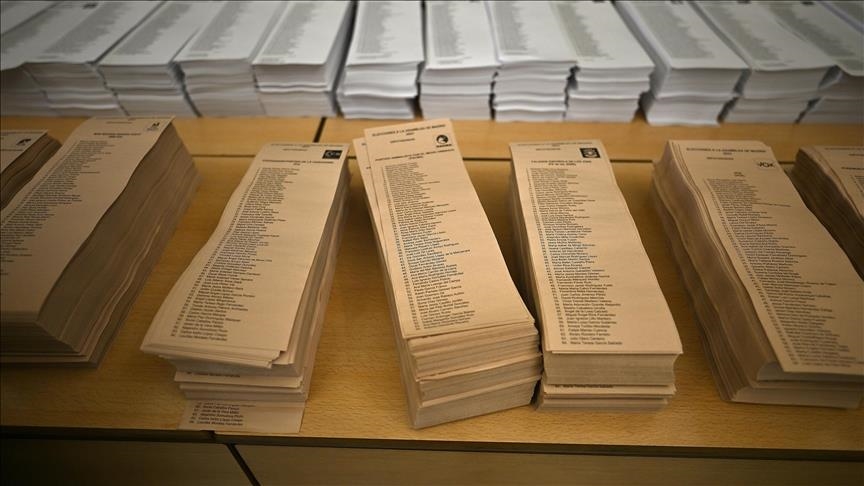Global Courant
Belgrade Serbia
Voters in the western Balkan country of Montenegro will go to the polls on Sunday to elect members of the next legislature in early parliamentary elections.
In the country’s sixth general election since the country’s transition to a multi-party system in 1990, 15 coalitions and parties are vying for seats in the 81-member parliament.
More than 542,000 registered voters will be eligible to vote in 1,038 ballot boxes nationwide on Sunday, according to State Election Commission data.
An early general election was called by former President Milo Djukanovic in response to a vote of confidence against the government led by Prime Minister Dritan Abazovic.
After almost three years of continuous political turmoil, which was voted on in August 2022 and toppled two governments, including one led by the then-Djukanovic-led Socialist Democratic Party (DPS), it could finally bring about a stable administration.
On Sunday, the pro-Western DPS, which has been in power for decades, will run for the first time in an election without Djukonavic, who resigned as leader on April 6 after having been the party’s leader for years.
The DPS is part of the Together bloc, along with its traditional ally the Liberal Party (LP), the Albanian Coalition and the Social Democrats.
The Europe Now party, led by Jakov Milatovic, which won the second round of the country’s presidential elections held on 2 April, will also participate in the general elections for the first time.
Reports suggest that centrist Europe Now has been leading the polls since Milatovic’s success in the presidential election, but he is not expected to gain enough seats in parliament to form a government on his own.
Fifteen electoral lists are competing, of which about half are parties that have passed the country’s 3% electoral threshold to win seats in the August 2020 parliamentary election.
The leading ones are Europe Now and the oppositional Together blog led by DPS.
Bosniak Party (BS); Croatian Civil Initiative (HGI); Movement for Justice for All; Socialist People’s Party (SNP)-Democratic Alliance (Demos); People’s Coalition; Reverse Movement; Change Movement; Yes we can! – for civilian Montenegro; Coalition Together; Aleksa and the Dritan Coalition; and the Albanian Forum Coalition other candidates.
Reports indicate that Bosniaks, Albanians and Croats will play a decisive role in Montenegro’s EU road, which has come to a standstill since 2020.
The economy is the focus of voters and election campaigns as the next government has to deal with high public debt and EU reforms.
Official data show that Montenegro’s public debt is 70.77% of gross domestic product (GDP), while annual inflation is 15%.
political crisis
The process of forming the new government, which began after former Prime Minister Abazovic’s administration failed in a no-confidence vote last year, has since turned into a political crisis.
Abazovic’s government sparked controversy after signing a “basic agreement” with Serbian Orthodox Church Patriarch Porfirije to give the church “official status” in Montenegro.
Pro-Serbian parties offered MP Miodrag Lekic to form the new government, while Djukanovic refused to appoint him on the grounds that he did not meet the necessary conditions.
Lekic later took up the mandate to form a government following the passage of a law restricting the president’s powers to form a government, but failed to garner the majority support he needed in parliament.
EU membership is creeping along
As polls suggest that no party or coalition can form a government on its own, concerns are growing that another unstable administration could create new barriers to Montenegro’s waning EU membership hopes.
Voters, on the other hand, want a “crisis-free” government and a country that is steadily moving towards the EU.
According to Montenegrin law, general elections are held every four years and a party must pass the 3% electoral threshold to enter parliament.
According to the 2011 census, Montenegrins and Serbs make up the largest ethnic groups in the country, followed by Bosniaks, Albanians, Romanians, Croats and smaller ones.
Only a part of the news presented to subscribers in the AA News Broadcasting System (HAS) and a summary are available on the Anadolu Agency website. Please contact us for subscription options.








